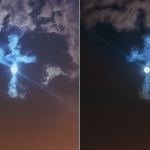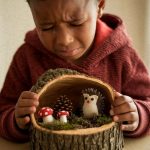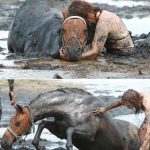Meet the Quokka — The Happiest Animal on Earth!
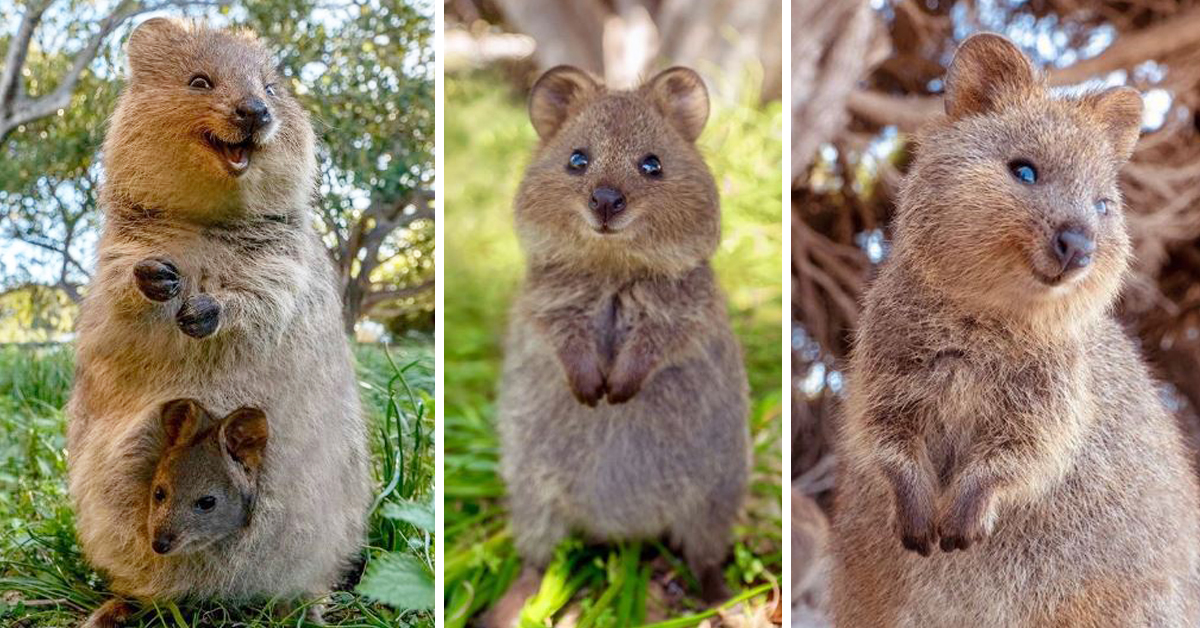
😊 Meet the Quokka — The Happiest Animal on Earth! 😍
There’s no denying that the quokka has captured the hearts of millions of people worldwide. Known for their constant, adorable smiles and friendly demeanor, these tiny marsupials from Australia have earned a reputation as the happiest creatures on the planet. With their beady eyes, chubby cheeks, and a smile that never seems to fade, quokkas have become an internet sensation, with people flocking to see them and snapping pictures with them, especially on Rottnest Island off the coast of Western Australia, where they are most commonly found.
The quokka, with its endearing appearance, seems to possess an infectious joy that brightens the mood of everyone who comes across them. In fact, quokkas have become a symbol of happiness, reminding us all that sometimes, the simplest things in life, like a big smile, can bring about the purest of joys. But beyond their cheerful looks, there’s much more to these little creatures than meets the eye. Their resilience and ability to adapt to tough environments make them a marvel of nature.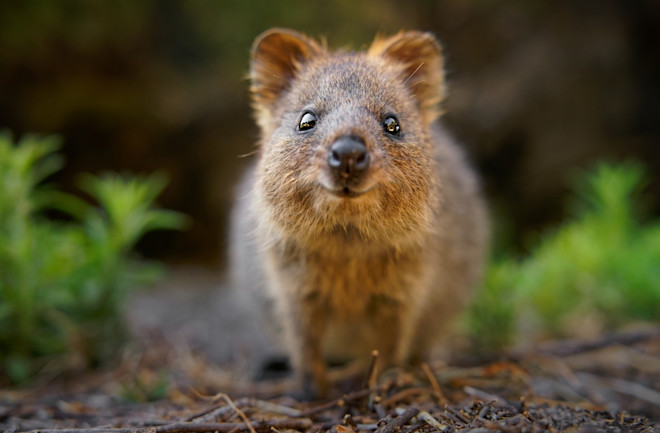
✨ Fun Fact: Despite their perpetually happy faces, quokkas are wild animals and are incredibly well-equipped for survival in harsh conditions. One of their most remarkable abilities is their survival trick: quokkas can go for long stretches of time without drinking water. How do they manage that, you ask? Well, these clever marsupials absorb the moisture they need from the leaves they eat. Their diet primarily consists of a variety of vegetation, such as grasses and shrubs, and they are adept at finding enough moisture in their food to sustain them in the wild Australian landscape. This remarkable trait helps them thrive in an environment where water can be scarce, and they’ve adapted beautifully to their surroundings.
In addition to their survival skills, quokkas are known to be curious and friendly animals. While they aren’t domesticated, they have little fear of humans and are often seen up close, happily hopping around, especially during the day when they are most active. They are herbivores and are typically found in large groups, grazing in the open areas of their habitats. When interacting with humans, their relaxed and approachable nature often leads to a memorable experience. However, it’s important to remember that these are still wild animals, and while they may seem friendly, they should be respected and admired from a distance to ensure their well-being and safety.
The quokka’s natural habitat is somewhat restricted, with their largest population living on Rottnest Island. Ironically, the island, which is a popular tourist destination, got its name from early Dutch explorers who mistakenly thought that the quokkas were giant rats—hence the name “Rottnest,” meaning “rat’s nest” in Dutch. Since then, the quokka has become a beloved symbol of the island, drawing tourists from all over the world who come to see the small, smiling marsupials up close.
🦘 Physical Characteristics: Quokkas are small, about the size of a domestic cat, with a stocky build and short, rounded ears. Their fur is generally a brown or greyish color, with some individuals sporting lighter fur on their bellies. Their facial features, particularly their wide, cheeky smile, have made them famous on social media, with countless photos of people posing with these jovial creatures circulating online. Their small size and comical expressions make them irresistibly cute, and it’s no surprise they’ve become internet celebrities. Their friendly demeanor also adds to their charm, making them the perfect subjects for selfies with tourists visiting Rottnest Island.
Quokkas in the Wild: While Rottnest Island is home to the largest population of quokkas, these delightful animals can also be found in other parts of southwestern Australia. Quokkas tend to live in dense, bushy areas where they can shelter from predators. They are nocturnal creatures, meaning they are most active at night, but they also graze during the day, especially in the cooler early morning and evening hours. Despite being small and relatively defenseless, quokkas have few natural predators, although introduced species such as foxes and feral cats can pose a threat. Conservation efforts have been in place to protect their habitats and to ensure their continued survival.
Cultural Significance and Conservation: The quokka’s rise in popularity has drawn attention to the importance of protecting this unique species and its fragile environment. While their populations are currently stable on Rottnest Island, the quokka is considered vulnerable in the wild, largely due to habitat destruction and predation by introduced species. Efforts are underway to protect their natural habitats, and conservationists are working to ensure that these friendly marsupials continue to thrive in their native ecosystems. Their increasing popularity also serves as a reminder of the delicate balance between nature and tourism, and how important it is to respect wildlife while enjoying the natural beauty they offer.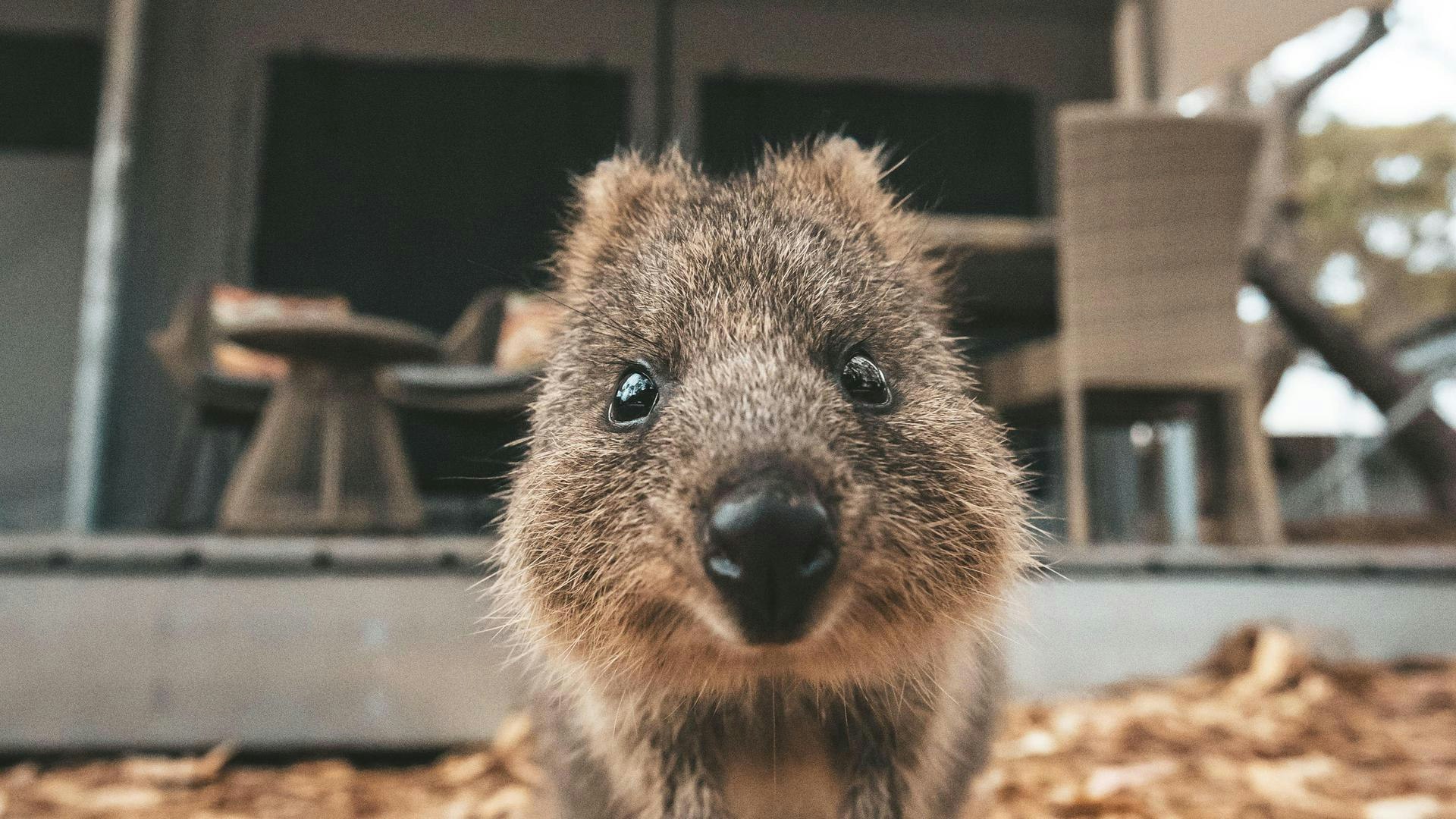
📸 The Quokka’s Smile: One of the most remarkable things about the quokka is how their natural smile has become an emblem of joy and positivity. Known for their photogenic faces, quokkas are often found posing for selfies, and their cheerful expressions are bound to brighten anyone’s day. It’s almost as if they know that their happiness is contagious, and their smiles spread a sense of joy that makes people feel better just by looking at them. Whether it’s a tourist visiting Rottnest Island or a quokka caught on camera in the wild, their grin has become a symbol of the simple pleasures of life. In many ways, the quokka reminds us that happiness doesn’t have to be complicated—it can be as simple as a smile.
As adorable as they are resilient, quokkas have captured the hearts of people worldwide, not just for their smile but for their ability to survive in some of the harshest conditions on Earth. From their unique survival strategies to their friendly, inquisitive nature, these small marsupials from Australia are a true testament to the wonders of the animal kingdom. Every glimpse of a quokka reminds us of the joy that can be found in even the smallest, simplest moments of life.


